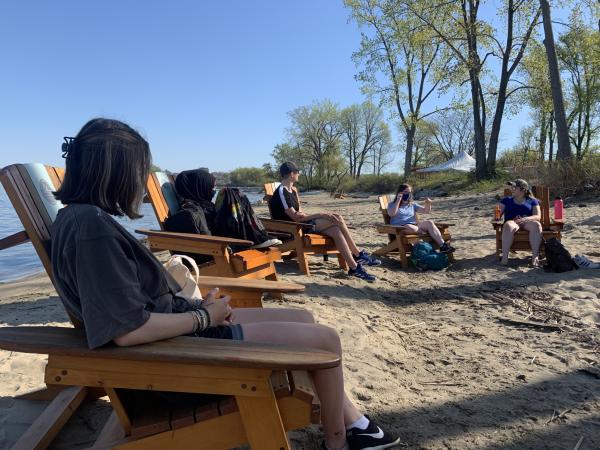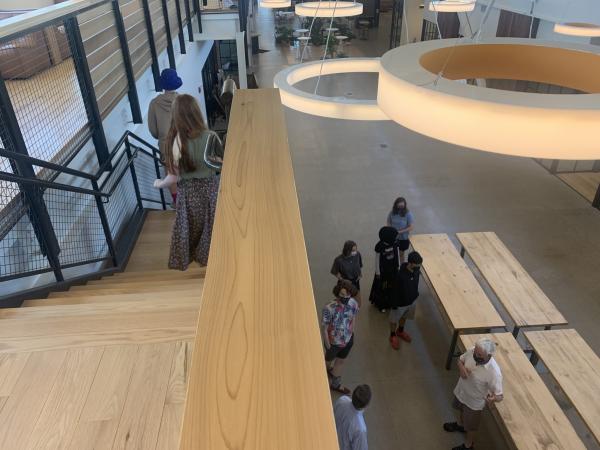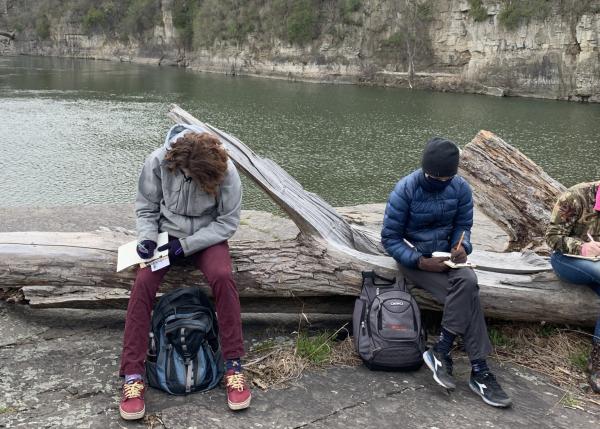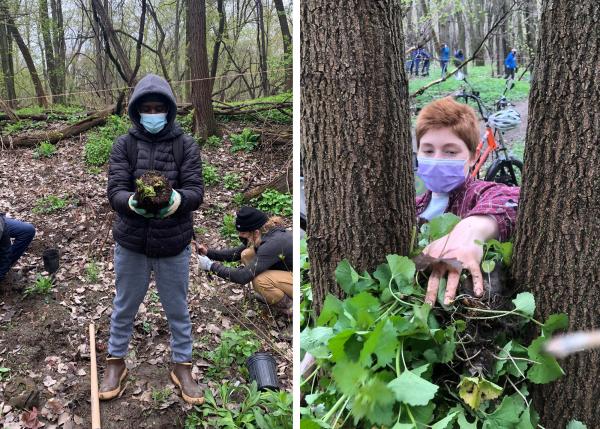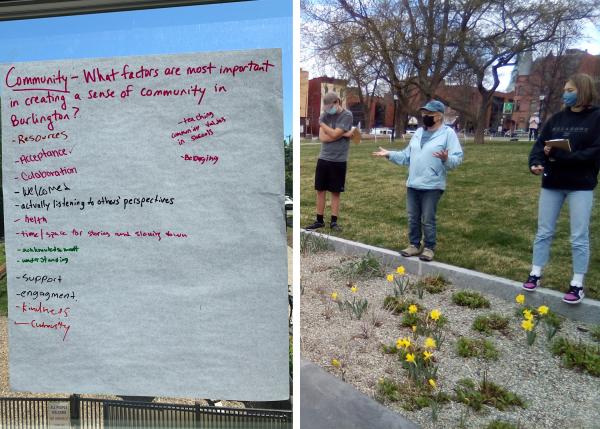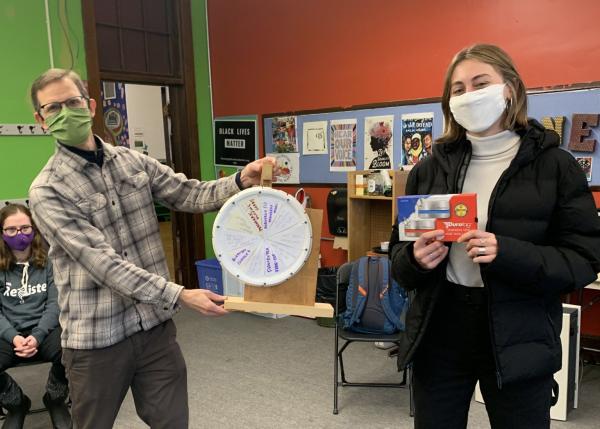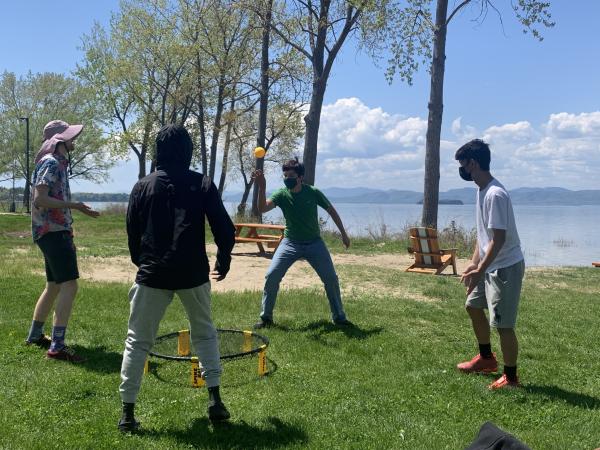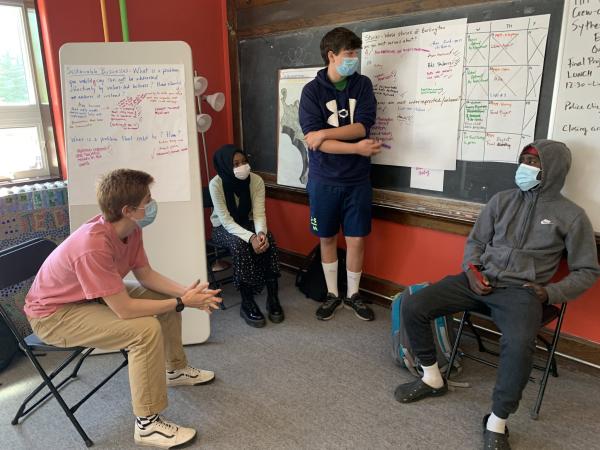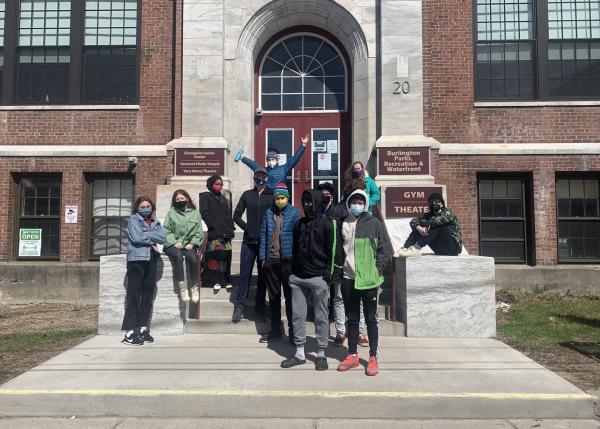Burlington City and Lake Semester: On Sustainability
Originally published by the Burlington City and Lake Semester on June 6, 2021. Shelburne Farms is a lead community partner with the Burlington City & Lake project.
The word sustainability is often associated with the environment – how to take care of and nurture our ecosystem. The Oxford English Dictionary, for example, highlights the “avoidance of the depletion of natural resources in order to maintain an ecological balance.”
In BE 2 (the current Burlington City & Lake Semester [BCL] program), we use a much broader definition of sustainability. Not only is sustainability part of our curriculum, as a core BCL theme, but it is also part of how we do what we do every day. We are sustaining our minds, bodies, community and natural spaces while also considering sustainability in the subjects and activities we engage with. Even our partnership with Shelburne Farms is grounded in the practice of “education for sustainability,” not just “education about sustainability.” As the website says:
Shelburne Farms’ education staff support both student learning and professional development for educators. The ideas of place and sustainability are at the heart of our work. We offer a variety of experiences that inspire deep connections to community and a commitment to a healthy future.
Here are some ways that we are incorporating the entirety of sustainability into our work with students in the BE 2 class.
Circling Up
We begin every morning with a student-led Morning Meeting which includes a greeting, shout-outs and appreciations, a check-in question, a fun activity, news of the day discussions, plans for the day, announcements and a quote of the day. These meetings help us build community; they ground us in the moment and prepare us for the day ahead. We also end our day with a Closing Circle where we again give shout-outs and appreciations, share thoughts on the day, complete an exit card and prepare for the next day together.
Community Partners
We explore businesses that value sustainability in various senses of the word – economic, environmental and social. Recently we spent two full days at Hula Lakeside, Burlington’s new business venue and co-working space, to learn about values-led businesses, including Hula itself, Ben & Jerry’s and 1% for the Planet. Students gained insight on how to create, build and sustain businesses, as they considered what their own values-led business might be in the future. Lots of great ideas were shared – watch out Shark Tank!
Walking the City
We put in the miles getting around to many corners of our city, sometimes on the bus, but mostly on foot. And the chilly rain or blasting sun usually doesn’t stop us. Our learning experiences often take us to the Winooski River, the lake and downtown. This is all in an effort to learn about sustaining natural spaces in Burlington, and to sustain ourselves by getting out and about.
Reflection
In the experiential learning cycle, time for reflection is essential, where students make meaning from the raw material of their experiences. Sometimes that reflection happens through conversation in our class group. Other times, it happens in little bursts in the midst of an activity or an interaction with a community partner, when students capture ideas, insights and questions in their journal. Almost every day, we find some time for a more extended journal write where students can make connections to earlier experiences, or to broader BCL themes. And, often, students tell us that they continue their reflection at home with family members or friends, when the real-world topics we engage in BCL connect with other parts of their lives. Wherever and whenever it happens, through reflection, we sustain our minds and spur our growth as students and life-long learners.
Stewardship
As we learn about the city we all call home, we discover ways to take better care of the land. We know that we are passing through, and the original people of the Winooski River and many others have stewarded this land for thousands of years. Learning about native peoples, native plants and origin stories help us sustain our connection to place. Through stories and opportunities for stewardship, like helping to plant ostrich ferns in the Intervale, we also strengthen our sense of belonging here.
Community
We are always exploring many aspects of community: our own community as learners, our community in the ONE Center; our Burlington community; our natural community; our Vermont community; and our world. What does it take for us to thrive? It certainly takes some understanding of keeping and maintaining what is good and working, while also growing and supporting each other.
Celebration
The BCL Birthday Wheel was busy this quarter with several birthdays to celebrate. Caring for each other and recognizing special milestones is also a way we sustain our relationships and connections. Ask any BCL or BE alum about the BCL Birthday Wheel to learn about where it came from and what kinds of prizes you can win (free-range eggs, hand-knit wool sweaters, B&J coupons, bamboo pocket tissues and much more).
Fun
We make having fun part of every morning meeting with the daily activity, but we also set aside time to have fun. Sometimes it’s more structured than other times, but often it is organic. Students find ways to play together and laugh. Fun is perhaps the most potent sustaining power of all.
Synthesis
A couple of times each semester, we make time for synthesis activities, where we explicitly look for connections between all the different learning experiences we’ve had; and where we go deeper into the BCL themes that cut across our curriculum. We often use poster paper to draw in the voices and ideas of all students and to jump-start our discussions. The goal is always to seek out deeper learning: the big ideas that challenge and inspire us and ultimately, become a part of our emerging worldview. The dynamic nature of the synthesis exercise, done as a whole group, is essential to its success. In the process, students demonstrate their individual understanding of core concepts and show growth in critical thinking and cross-cultural understanding. The theme of sustainability typically features prominently in these activities.
That’s a glimpse into how we engage with sustainability in some of the many meanings of the word. BE2 is coming to a close and this group has sustained a lot this spring, and we’re fortunate to have had the opportunity to gather, learn and explore together.
